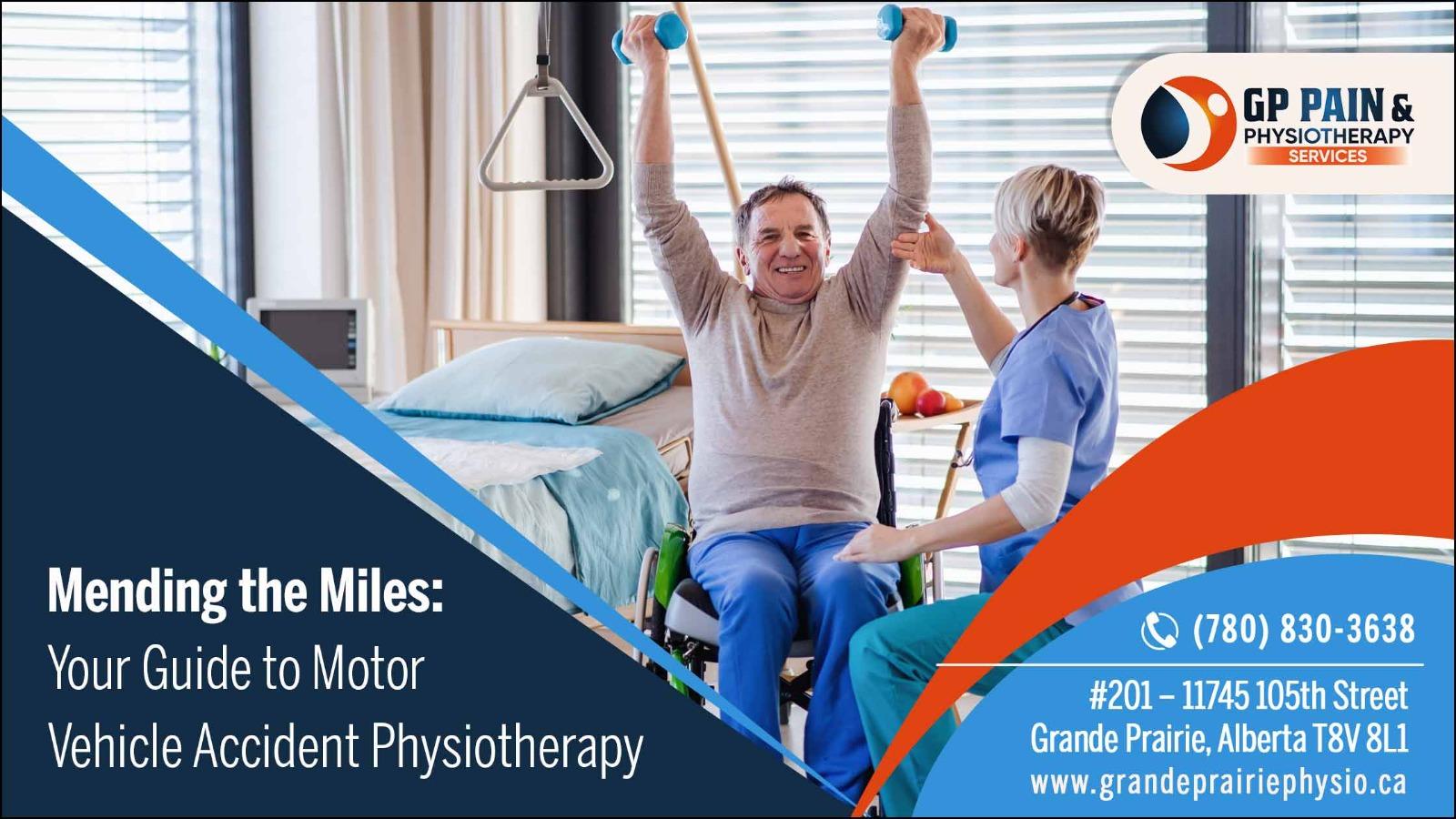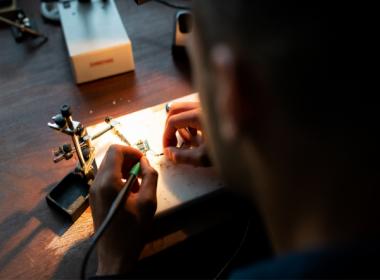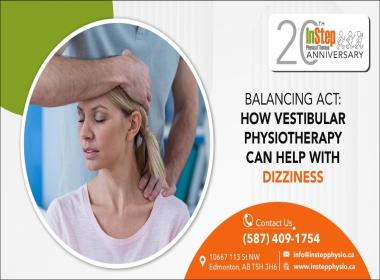
Bouncing back from a motor vehicle accident may seem daunting, yet with appropriate care and expert advice, regaining your former health and energy is achievable. Motor vehicle accident physiotherapy in Grande Prairie at GP Pain Physiotherapy provides customized rehabilitation plans tailored to the unique needs of each individual affected by car accidents.
Understanding Motor Vehicle Accident Physiotherapy
Car accident physiotherapy is a specialized field focused on treating injuries that are commonly sustained in car accidents. These may include whiplash, back injuries, fractures, muscle strains, and joint sprains. The goal is to address both the immediate pain and long-term effects of these injuries, preventing chronic pain and disability.
The Impact of Car Accidents on the Body
The human body can suffer a wide range of injuries in a car accident. High-impact collisions can cause serious musculoskeletal injuries, while even low-impact crashes can lead to chronic conditions if not properly treated. Common symptoms post-accident include stiffness, reduced range of motion, persistent pain, and headaches, all of which can be addressed through targeted physiotherapy.
The Role of Early Intervention
Initiating physiotherapy promptly following a motor vehicle accident is vital for an effective and swift recovery. Immediate treatment can ward off the onset of chronic pain and stiffness and help to accelerate the healing process. This approach also facilitates a faster return to daily activities and work.
How Does Motor Vehicle Accident Physiotherapy Help
Comprehensive Pain Management
This approach begins with a thorough assessment to pinpoint pain sources, ensuring treatments are precisely targeted. Physiotherapists use a blend of heat therapy, cold compresses, electrical stimulation, and even acupuncture to relieve your pain. Techniques like ultrasound or TENS, which work at the cellular level to promote healing and pain relief, are used. Additionally, manual therapies like soft tissue mobilization can directly alleviate deep-seated muscle pain. The physiotherapist also teaches you pain management strategies you can use at home, like proper icing techniques. Over time, this multifaceted approach not only manages pain but also addresses its underlying causes.
Regaining Mobility and Flexibility
A personalized exercise regimen focuses on gradually restoring your range of motion, taking care not to push too hard too soon. These exercises often incorporate elements of yoga or Pilates, blending strength with flexibility. The therapist closely monitors your progress, ensuring that each movement is contributing to your recovery. Functional movements, mimicking daily activities, are included to make the recovery as practical as possible. Mobility aids or assistive devices might also be introduced temporarily to aid in safe movement.
Strengthening Exercises
The therapist starts with low-impact exercises, progressively increasing the intensity as your muscles regain their strength. These exercises are often complemented with stability training, which is vital for preventing future injuries. Core strengthening is a key focus, as a strong core supports the entire body, especially after an accident. Resistance bands, light weights, or body-weight exercises are utilized based on your specific condition and tolerance. The aim is to build a strong foundation, ensuring your body can withstand the rigors of daily life post-recovery.
Re-educating Your Body
Techniques like proprioceptive training are employed to improve your body's awareness of its position in space, which is crucial after an accident. Balance exercises are incorporated, which help recalibrate your body's natural equilibrium systems. The therapist often uses mirror feedback, where you perform exercises in front of a mirror to correct and understand body mechanics. This re-education process also involves learning how to distribute weight evenly while moving to prevent undue stress on injured areas. Gradually, these exercises help to restore natural movement patterns, reducing the risk of re-injury.
Postural Training
Postural assessments are conducted to identify any misalignments or imbalances caused by the accident. Ergonomic advice is provided, especially if you're returning to a desk job, to ensure your workspace supports your recovery. The therapist demonstrates corrective postural exercises that can be integrated into your daily routine. You'll learn about the importance of dynamic posture – maintaining good posture while in motion. This training is crucial not only for recovery but also for the prevention of future posture-related issues.
Emotional and Psychological Support
Acknowledging and addressing the emotional trauma that often accompanies accidents is a key part of therapy. The therapist creates a supportive environment where you can express concerns about your recovery and limitations. Relaxation techniques, including deep breathing and mindfulness, are introduced to help manage stress and anxiety. This support helps in building resilience and a positive mindset, which are crucial for effective recovery. The therapeutic alliance formed becomes a cornerstone in your journey to reclaiming your health and confidence.
Steering Towards Healing With Motor Vehicle Accident Physiotherapy
Motor vehicle accidents could have a significant impact on your life, but with the right physiotherapy approach, recovery is within reach. GP Pain Physiotherapy in Grande Prairie offers specialized care and support for those affected by car accidents, helping them mend the miles on their journey back to health. Through personalized treatment plans, early intervention, and a holistic approach, patients can overcome the physical and emotional challenges of post-accident recovery, paving the way to a healthy, active future.
Also read about:
Benefits Beyond the Basics Unexpected Advantages of Pelvic Floor Physiotherapy
Best Furniture For Home in Dubai
How to choose the best furniture shop in uae








